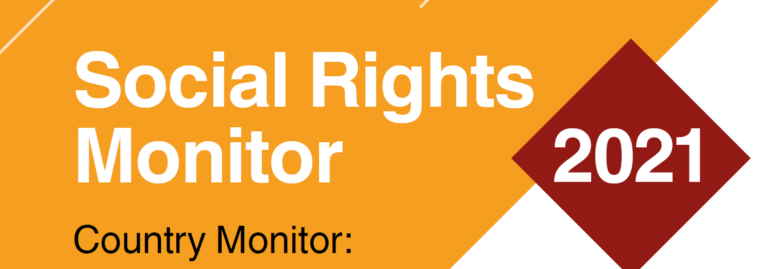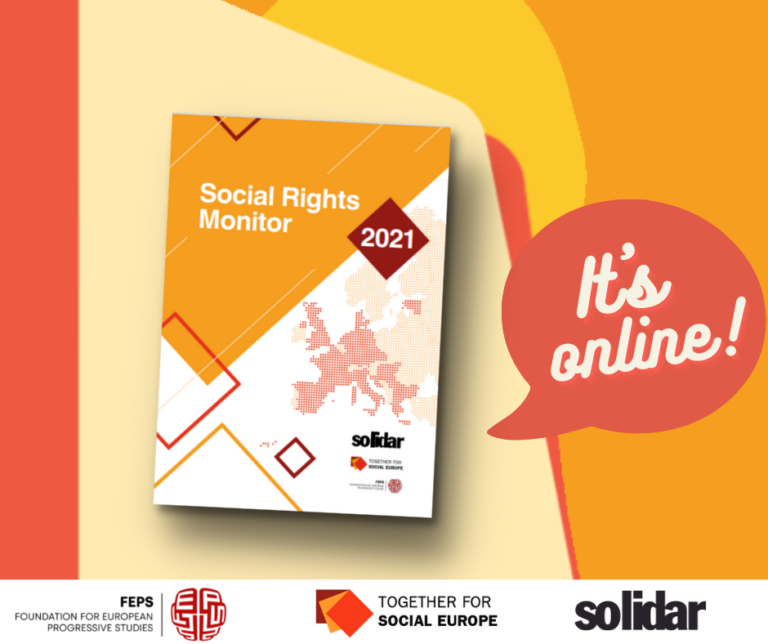Social Rights Monitor – Morocco
Recommendations
The action plans, which set out the mutual commitments between the EU and Morocco with regards to social, political and economic matters for the period 2013-2017, are coming to an end. In the framework of the revised neighbourhood policy, this should give room now for partnership priorities which should guide their future relations. Based on the above report, EU-Morocco bilateral relations, either through partnership priorities or other agreed commitments, should be shaped based on the following recommendations.
The EU-Morocco partnership should promote an inclusive and human rights-based approach to development. It should also be based on a participatory approach to civil society organizations to reinforce the trust between the government, the EU and the civil society. Social justice can only be achieved within a society that is inclusive, where citizens can access the democratic process and play an active role in society. This requires dialogue between public institutions and civil society organizations in order to guarantee the participation of all stakeholders in elaborating and monitoring public policy. More specifically, the EU should support the Moroccan government:
- In reinforcing the health care system but also other essential services to help meet each of the four criteria of availability, accessibility, acceptability and quality. Territorial inequality should also be tackled as it creates great disparities in accessing proper health care and creates a gap between populations from urban and rural zones. This also means investing in education and training to make up for the lack of health care staff (matching education with the needs of the market) and establishing an assessment monitoring mechanism in order to provide solutions to the most important deficiencies encountered in the access to health care services as already mentioned in our recommendations of 2015[1];
- In putting in place a proper, more fitting and universal social protection system that better responds to needs and covers a broader range of the population. Income security should not be discriminatory;
- In simplifying administrative procedures and access to social benefits or pensions;
- To ensure education and employment policies are decided based on an assessment of the country’s needs. Policies must aim to increase employment; reduce school dropout; reduce the number of people in poverty and on the verge of falling into poverty; reduce vulnerabilities.
- To engage with a better understanding of the scope and implications of the informal sector, which is responsible for insecurity in terms of wages, social protection, working conditions and human rights, in order to further seek solutions, possible regulations and more appropriate forms of organization.
- To organize collective bargaining regularly and systematically, including representatives of the government, the employers and workers. It should not only be seen a consultative process but also as a place where decisions can be made based on the needs and demands of the population. It also requires trade unions to be better organized, independent, representative of all workers, etc.
- To help fight against corruption while ensuring better transparency.
- To invest in Moroccan youth as it is suffering greatly from unemployment, with many college graduates finding themselves unemployed after years of studying. Investments in order to provide jobs opportunities and adequate training to enter into the job market are urgently needed to keep this young generation off the street and out of trouble.
It is in the interests of the EU to support the Moroccan government in implementing appropriate social policies. It is only through an open, dynamic, engaged, solidarity-based society that stability and security in the country can be achieved.




